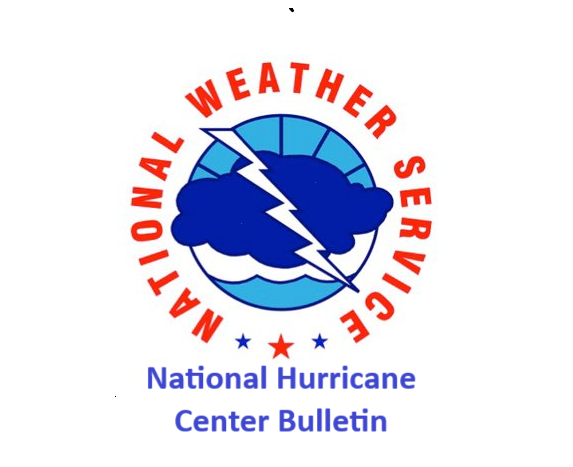232 WTNT34 KNHC 101442 TCPAT4 BULLETIN Hurricane Milton Advisory Number 22 NWS National Hurricane Center Miami FL AL142024 1100 AM EDT Thu Oct 10 2024 ...TROPICAL STORM CONDITIONS AND STORM SURGE CONTINUE ALONG PORTIONS OF THE SOUTHEAST U.S. COAST AND EXTREME NORTHWESTERN BAHAMAS... SUMMARY OF 1100 AM EDT...1500 UTC...INFORMATION ----------------------------------------------- LOCATION...29.1N 78.5W ABOUT 135 MI...220 KM ENE OF CAPE CANAVERAL FLORIDA ABOUT 205 MI...330 KM NNW OF GREAT ABACO ISLAND MAXIMUM SUSTAINED WINDS...80 MPH...130 KM/H PRESENT MOVEMENT...ENE OR 65 DEGREES AT 20 MPH...31 KM/H MINIMUM CENTRAL PRESSURE...983 MB...29.03 INCHES WATCHES AND WARNINGS -------------------- CHANGES WITH THIS ADVISORY: The Hurricane Warning from Sebastian Inlet to the Flagler/Volusia County Line has been changed to a Tropical Storm Warning. The Tropical Storm Warning has been discontinued south of Sebastian Inlet and for Lake Okeechobee. The government of the Bahamas has discontinued the Tropical Storm Warning for Bimini. SUMMARY OF WATCHES AND WARNINGS IN EFFECT: A Storm Surge Warning is in effect for... * Sebastian Inlet Florida to Altamaha Sound Georgia, including the St. Johns River A Tropical Storm Warning is in effect for... * Sebastian Inlet Florida northward to Edisto Beach South Carolina * Extreme northwestern Bahamas, including Grand Bahama Island and the Abacos A Storm Surge Warning means there is a danger of life-threatening inundation, from rising water moving inland from the coastline in the indicated locations. For a depiction of areas at risk, please see the National Weather Service Storm Surge Watch/Warning Graphic, available at hurricanes.gov. A Tropical Storm Warning means that tropical storm conditions are expected somewhere within the warning area. For storm information specific to your area in the United States, including possible inland watches and warnings, please monitor products issued by your local National Weather Service forecast office. For storm information specific to your area outside of the United States, please monitor products issued by your national meteorological service. DISCUSSION AND OUTLOOK ---------------------- At 1100 AM EDT (1500 UTC), the center of Hurricane Milton was located near latitude 29.1 North, longitude 78.5 West. Milton is moving toward the east-northeast near 20 mph (31 km/h). A turn toward the east is expected later today, with that motion forecast to continue over the western Atlantic for the next few days. On the forecast track, the center of Milton will continue to move away from the east coast of Florida and pass north of the northwestern Bahamas today. Maximum sustained winds are near 80 mph (130 km/h) with higher gusts. Milton is forecast to become a powerful post-tropical storm this afternoon or evening, with gradual weakening expected during the next several days. Hurricane-force winds extend outward up to 70 miles (110 km) from the center and tropical-storm-force winds extend outward up to 310 miles (500 km). A sustained wind of 39 mph (63 km/h) and a gust to 44 mph (71 km/h) were recently reported at Settlement Point on Grand Bahama Island. The estimated minimum central pressure is 983 mb (29.03 inches). HAZARDS AFFECTING LAND ---------------------- Key Messages for Milton can be found in the Tropical Cyclone Discussion under AWIPS header MIATCDAT4 and WMO header WTNT44 KNHC and on the web at hurricanes.gov/text/MIATCDAT4.shtml STORM SURGE: The combination of a dangerous storm surge and the tide will cause normally dry areas near the coast to be flooded by rising waters moving inland from the shoreline. The water could reach the following heights above ground somewhere in the indicated areas if the peak surge occurs at the time of high tide... Flagler/Volusia County Line, FL to Altamaha Sound, GA...3-5 ft Sebastian Inlet, FL to Flagler/Volusia County Line, FL...2-4 ft St. Johns River...2-4 ft The deepest water will occur along the immediate coast in areas of onshore winds, where the surge will be accompanied by large and dangerous waves. Surge-related flooding depends on the relative timing of the surge and the tidal cycle, and can vary greatly over short distances. For information specific to your area, please see products issued by your local National Weather Service forecast office. For a complete depiction of areas at risk of storm surge inundation, please see the National Weather Service Peak Storm Surge Graphic, available at hurricanes.gov/graphics_at4.shtml?peakSurge. RAINFALL: Additional rainfall amounts around an inch are possible along the northeastern coast of Florida through today. In the wake of heavy rainfall from Milton, the risk of considerable urban flooding will linger through this morning across east central Florida. Moderate to major river flooding is ongoing and forecast throughout central Florida. For a complete depiction of forecast rainfall associated with Hurricane Milton, please see the National Weather Service Storm Total Rainfall Graphic, available at hurricanes.gov/graphics_at4.shtml?rainqpf and the Flash Flood Risk graphic at hurricanes.gov/graphics_at4.shtml?ero. WIND: Tropical storm conditions continue within the tropical storm warning areas in Florida, Georgia, South Carolina, and the extreme northwestern Bahamas. SURF: Swells generated by Milton are expected to continue to affect portions of the southeast U.S. and the Bahamas during the next couple of days. These swells could cause life-threatening surf and rip current conditions. Please consult products from your local weather office. NEXT ADVISORY ------------- Next intermediate advisory at 200 PM EDT. Next complete advisory at 500 PM EDT. $$ Forecaster Berg
Source link


